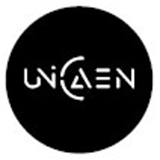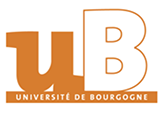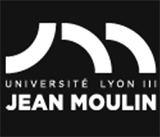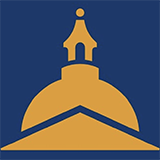Introduction
Paris 1 Panthéon Sorbonne University, also known as the Panthéon-Sorbonne University, is one of the oldest universities in Europe and even in the world. It is located in the French capital of Paris and its history can be traced back to the 13th century.
Overview
Student size: As of July 2023, it has more than 45,000 students.
Teacher team: more than 1,500 teachers and teacher researchers.
History
In 1253, Robert de Sorbonne established a college, which was renamed Sorbonne University in 1257.
In 1789, the University of Paris participated in the revolution. In 1791, the Chappelle Act abolished its legal personality and the school was closed.
In 1971, the first Panthéon-Sorbonne University was established according to the decree of the University of Paris.
Establishment time
Formally established in 1971, its predecessor can be traced back to 13 Century.
School Strength
Teaching Quality: As the top public higher education institution in France, it inherits the tradition of French elite education, and ranks among the world's top comprehensive universities with its excellent education quality and leading scientific research level. It has trained a large number of outstanding talents for France's administration, justice, enterprise, and academic fields.
Scientific Research Level: It has more than 200 researchers engaged in large national research institutions and 150 engineers, administrative staff and technicians, forming 68 recognized research teams, and has achieved remarkable scientific research results in multiple disciplines.
Institutional Nature
Public University.
Educational Philosophy
The school focuses on cultivating students' critical thinking, innovation ability and interdisciplinary literacy, encourages students to actively explore in academic research and social practice, inherits and promotes France's academic traditions and cultural spirit, and cultivates professionals with a high sense of responsibility and global vision for the society.
Key laboratories and disciplines
Key laboratories: The university has a number of research centers and laboratories with significant influence in the humanities and social sciences, such as the Center for Advanced Tourism Research, the Center for Enterprise Research, the Center for Economic and Social Development Research, etc., which provide strong support for the research and practice of related disciplines.
Key disciplines:
Law: Ranked 18th in the 2023 QS World University Rankings by Subject, its law school's training center brings together four departments to train students in law, covering public law, private law, international law, European law and comparative law, and has trained a large number of professionals for the French judicial community.
History: It is one of the largest history departments in Europe, ranked 20th in the QS World University Rankings by Subject, taught by leading teachers and researchers, and provides extremely rich and diverse training programs covering different eras and geographical regions. It has an interdisciplinary nature and makes full use of knowledge and methods in fields such as sociology, anthropology, geography, and economics.
Archaeology: Ranked 16th in the QS World University Rankings by Subject The School of Art History and Archaeology offers unique training courses in France through its rich specialties, ranging from archaeology in the Pacific or Northern Europe to the history of photography or film, or contemporary African art.
Economics: The Sorbonne School of Economics is one of the oldest economics institutions in France. It has been ranked among the top three best universities in France in the economics category in the QS World University Rankings by Subject for many years. Its Bachelor of Economics degree provides a comprehensive economics training, including basic theoretical subjects and applied subjects. Quantitative teaching such as mathematics and statistics is also part of the training.
Faculty
The University of Paris I is divided into 3 schools, a total of 14 departments and 9 research centers, as follows:
School of Economics and Management: including the Department of Economics, the Department of Management and Business Economics, the Department of Mathematics and Computer Science, etc.
School of Humanities: covering the Department of Art History and Archaeology, the Department of Plastic Arts and Art, the Department of Geography, the Department of History, the Department of Philosophy, etc.
School of Law and Political Science: with the Department of Administrative Law and Public Sector, the Department of Commercial Law, the Department of International Law and European Law, the Department of Political Science, the Department of Labor and Social Studies, etc.
Ranking
In the 2023 QS World University Rankings by Subject, the school ranked 16th in Archaeology, 15th in Classical and Ancient History, 18th in Law, and 20th in History.
In the 2024 QS World University Rankings, it ranked 328th.
Expenses
Tuition fees: As a French public university, the general registration fee for undergraduate studies is around 200-400 euros, and the master's degree is around 300-600 euros.
Living expenses: The cost of living in Paris is relatively high, and the monthly living expenses such as rent, food, and transportation are about 1000-1500 euros.
Campus
Campus distribution: There are 6 campuses in total, including Centre Saint-Charles pour les arts plastiques, Centre Tolbiac, etc.
Teaching facilities: The Sorbonne Library, which has nearly 3 million books, is a highlight of the school. In addition, the school is also equipped with advanced teaching facilities and scientific research equipment, providing a good learning and research environment for students and researchers.
-

University of Angers
-

University of Caen Normandy
-

University of Bordeaux
-

Claude Bernard University Lyon 1
-

University of Burgundy
-

CY Cergy Paris University
-

Clermont Auvergne University
-

University of Artois
-

Jean Moulin University Lyon 3
-

University of Franche-Comté
-

Mesoamerican University
-

Istmo University
-

Mariano Galvez University of Guatemala
-

Regional University of Guatemala
-

Galileo University
-

Francisco Marroquín University
-

Rafael Landívar University
-

University of the Valley of Guatemala
-

University of San Carlos of Guatemala
-

Technological Institute of Tlaxcala Plateau
-

Golfo University
-

Technological University of South Sonora
-

Technological University of Huejotzingo
-

Tizimín Institute of Technology
-

Chilpancingo Institute of Technology

